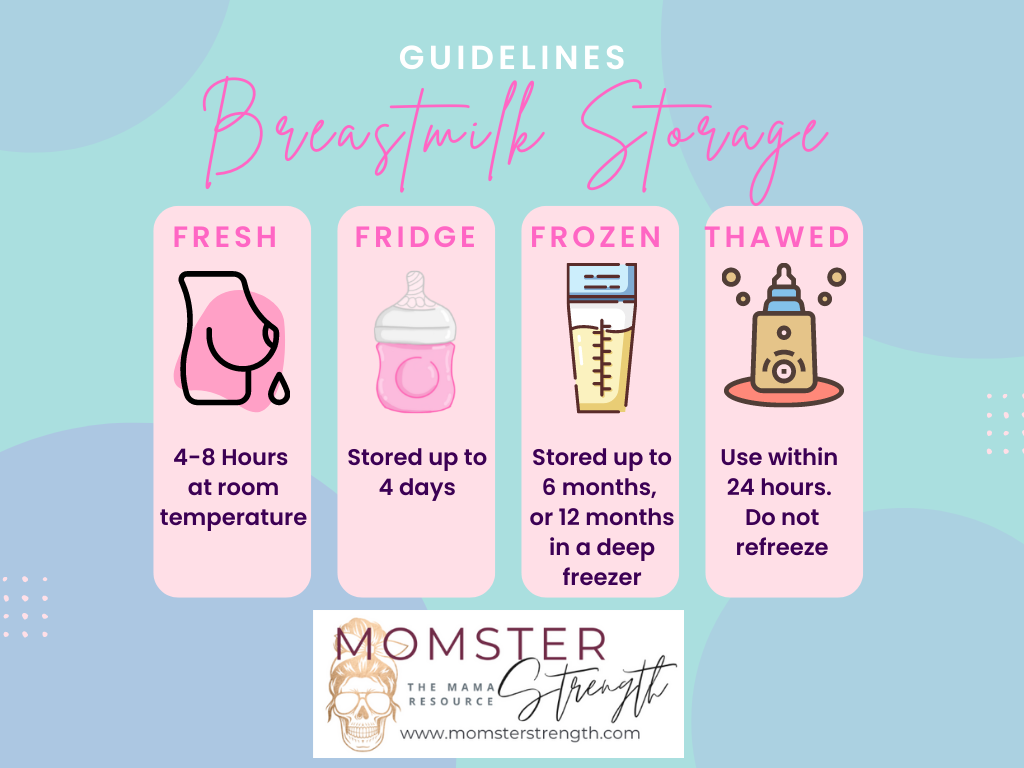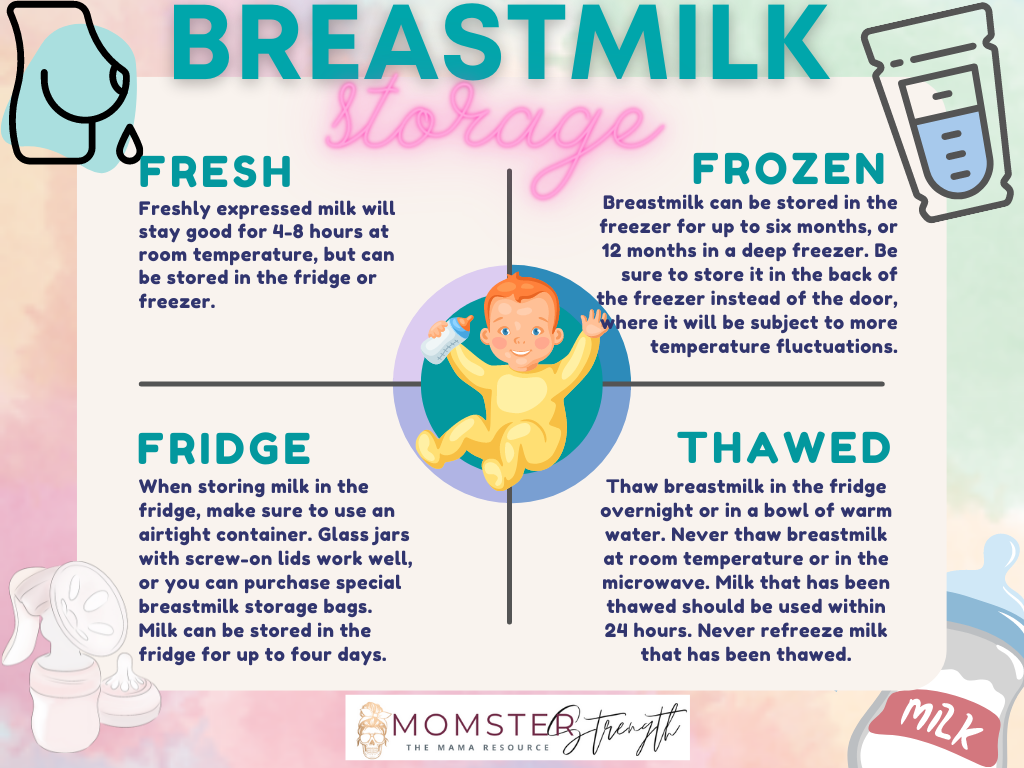5 Best Tips to Use and Store Breastmilk
Are you a new mom wondering how to store breastmilk? Or maybe you’ve been storing milk for a while but want to make sure you’re doing it correctly. Wonder no more! This ultimate guide will tell you everything you need to know about safe and effective breastmilk storage. From fridge storage to freezer tips, we have you covered. Don’t miss out – read this guide today!

How to Store Breastmilk?
Freshly expressed milk will stay good for 4-8 hours at room temperature, but can be stored in the fridge or freezer. Keep in mind that separation during storage is normal. You will want to swirl breastmilk, never shake.
Storing Breastmilk in the Fridge
If you plan on storing milk in the fridge, make sure to use an airtight container. Glass jars with screw-on lids work well, or you can purchase special breastmilk storage bags.
Breastmilk can be stored in the fridge for up to four days.
Storing Breastmilk in the Freezer
If you plan on freezing milk, make sure to use an airtight freezer-safe container. You can also use special breastmilk storage bags, which are made for freezing. Make sure to label them with the date before you freeze them.
Breastmilk can be stored in the freezer for up to six months, or 12 months in a deep freezer. Be sure to store it in the back of the freezer instead of the door, where it will be subject to more temperature fluctuations.
Benefits of Breastmilk Storage?
The benefits of breastmilk storage: Breastmilk is full of nutrients and antibodies that are beneficial for baby. Breastmilk is considered liquid gold and can be used in many different ways, aside from feeding your baby. Some other uses for breastmilk include:
- Using it as a Salve: You can use breastmilk as a natural way to heal cuts, scrapes, and even diaper rash!
- Helping With Congestion: Got a stuffy nose? Try putting a few drops of breastmilk up each nostril. The antibodies in the milk will help fight the infection and clear up the congestion.
- Moisturizing Skin Lotion: Breastmilk makes a great natural moisturizer for both baby and adults! You can use it to help hydrate dry skin, eczema, and even psoriasis. Simply apply it to the affected area and let it soak in.
Storage guidelines for different types of milk expression
Here is the meat of your post. You’ll break down the problem into a list of easy-to-accomplish steps to help your reader.
1. Pumped Milk
- Use within 4-8 hours.
- If you have any leftover breastmilk after a feed, you can refrigerate it for up to four hours. Don’t leave milk out of the fridge for longer than this, as it can spoil.
2. Hand Expressed Milk
- Hand expressed milk should be used immediately or refrigerated in a clean, covered container for up to four hours.
3. Donor Milk
- Donor milk should be used within 48 hours of thawing and never refrozen. If you are not going to use the milk within this time frame, it should be discarded.

Thawing and heating frozen breastmilk
- When you’re ready to use frozen milk, it’s important to thaw it properly to avoid damaging the nutrients. Thaw it in the fridge overnight or in a bowl of warm water. Never thaw breastmilk at room temperature or in the microwave.
- Milk that has been thawed should be used within 24 hours. Never refreeze milk that has been thawed.
- Warming Breastmilk: You can warm thawed or freshly expressed milk by placing the container in a bowl of warm water or using a bottle warmer. Never microwave breastmilk, as this can damage the nutrients.
Additional tips for breastmilk storage
- If you are pumping milk at work, store the milk in a cooler bag with ice packs.
- To prevent waste, consider freezing milk in small amounts so that you can thaw only what you need.
- When traveling, always bring along more breastmilk than you think you’ll need, as it’s better to have too much than not enough.
Conclusion
So there you have it, our top tips for storing breastmilk. Whether you’re a working mom who needs to pump on the go or just want to make sure your freezer stash is well stocked, we hope this post has given you all the information you need. And remember, if you ever have any questions about breastfeeding or pumping, don’t hesitate to reach out to us – we’re more than happy to help or guide you to the right professional – happy storing!
For more information on breastfeeding, check out our other articles!







2 Comments
Comments are closed.